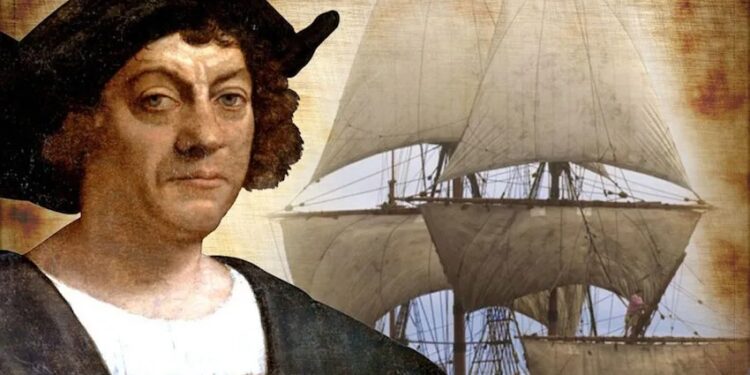In 1492, the world witnessed a momentous event that would change the course of history forever. Christopher Columbus, an Italian explorer, embarked on a daring voyage across the Atlantic Ocean, seeking a new route to the Indies. Little did he know that his expedition would lead to the discovery of the New World and transform the global landscape.
Christopher Columbus, with the support of Queen Isabella and King Ferdinand of Spain, set sail with three ships – the Santa Maria, the Pinta, and the Niña. After an arduous journey, on October 12, 1492, land was spotted. Columbus and his crew reached an island in the present-day Bahamas, believing they had reached the eastern shores of Asia. The explorer named the newfound land “San Salvador,” and this marked the beginning of the Columbian Exchange – an exchange of goods, ideas, culture, and diseases between the Old World and the New World.
The encounter between the Old World and the New World had profound implications for both regions. Columbus’s voyage initiated European colonization, leading to the exploration and settlement of the Americas by Spain, Portugal, England, France, and other European powers. This colonization brought about the tragic consequences of disease, violence, and forced labor on the indigenous populations, drastically changing their way of life.
The New World, on the other hand, introduced Europe to new crops, such as potatoes, tomatoes, and maize, which revolutionized agriculture and improved diets, leading to population growth. Additionally, the discovery of vast reserves of gold and silver enriched European economies and spurred the rise of global trade.
Columbus’s voyage also paved the way for further exploration. Other expeditions followed, leading to the mapping of new territories, including the discovery of the Pacific Ocean by Vasco Núñez de Balboa in 1513.
While Columbus’s expedition is celebrated as a historical achievement, it is also the subject of controversy and criticism. The treatment of indigenous peoples, the transatlantic slave trade, and the ecological impact of colonization raise questions about the legacy of Columbus’s exploration.
In conclusion, Christopher Columbus’s voyage of 1492 marked a turning point in history. It opened up new possibilities for exploration, colonization, and trade between the Old and New Worlds. However, it also brought immense suffering to indigenous populations and left a complex legacy that continues to be examined and debated to this day. As we reflect on the significance of Columbus’s journey, it is essential to remember the lessons of the past and strive for a more inclusive and compassionate understanding of our shared history.
Was Columbus born in Mallorca?
The theory that Christopher Columbus hailed from Mallorca, an island in the Mediterranean Sea and part of present-day Spain, is a topic of historical speculation that has intrigued researchers and historians for many years. While the predominant belief is that Columbus was born in Genoa, Italy, the Mallorca theory presents an alternative narrative regarding the explorer’s origin.
The Mallorca theory suggests that Columbus was actually born in the town of Pollença on the island of Mallorca. The theory gained momentum in the late 19th century when a document was allegedly discovered in the archives of the Cathedral of Palma de Mallorca. According to this document, Columbus was born to a family of humble weavers in Pollença in 1451. The proponents of this theory argue that Columbus later moved to Genoa, where he assumed a new identity and fabricated a different background to gain acceptance in the Italian society.
While the Mallorca theory offers an intriguing alternative, it has faced substantial skepticism and challenges from the historical community. Many historians argue that the document found in the Palma de Mallorca archives could have been a forgery or a misinterpretation, and there is a lack of concrete evidence to support the claim that Columbus was actually born on the island.
The mainstream view remains that Columbus was born in Genoa, Italy, as he himself asserted on multiple occasions. Contemporary accounts and Columbus’s own letters and documents consistently refer to his Italian origins. Additionally, Genoa has historically celebrated Columbus as one of its most famous sons.
The controversy surrounding Columbus’s birthplace reflects the complexities of historical research, particularly when dealing with events that occurred centuries ago. The scarcity of primary sources and the passage of time make it challenging to definitively determine certain aspects of historical figures’ lives.
In the end, while the Mallorca theory has its proponents, the mainstream consensus continues to favor Genoa as Columbus’s birthplace. Nevertheless, the debate remains an intriguing aspect of historical scholarship, inviting further investigation and analysis to uncover the truth about the origins of one of history’s most influential explorers.
newshub



Recent Comments